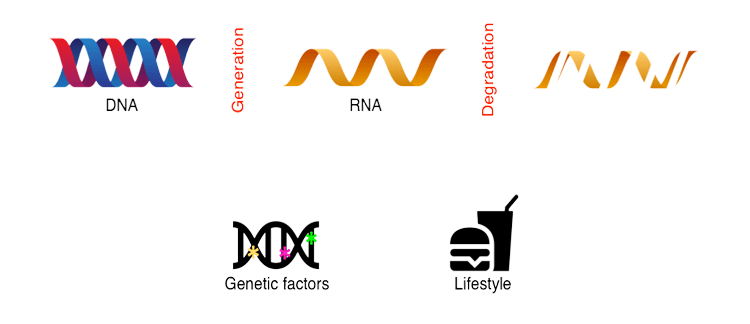
About
Dr. Xiangbo Ruan is an Assistant Professor of medicine in the Division of Endocrinology, Diabetes and Metabolism at the Johns Hopkins University School of Medicine. Dr. Ruan received his Ph.D. in biochemistry from the prestigious Shanghai Institutes for Biological Sciences of Chinese Academy of Sciences. To continue his scientific endeavor, Dr. Ruan joined National Heart, Lung, and Blood Institute (NHLBI)/National Institutes of Health (NIH) as a visiting fellow to explore the role of new RNA genes in metabolic diseases. During his time at NIH, Dr. Ruan received several awards, including the Fellows Award for Research Excellence, Orloff Science Awards, and NHLBI Director’s Award for Outstanding Basic Science. Upon joining the Johns Hopkins University School of Medicine/Johns Hopkins All Children’s Hospital as a faculty member in 2021, Dr. Ruan has successfully established his research program studying RNA biology in liver diseases. His continued research excellence made him the awardee of the Second Century Early Faculty Independence Award from the American Heart Association (2023) and the W. Leigh Thompson Excellence in Research-Faculty Award from Johns Hopkins University School of Medicine (2024).
Research
RNA metabolism includes the transcription, splicing, modification, transportation, translation, and degradation of RNA molecules. The Ruan lab’s research aims to understand how genetic/environmental factors affect RNA metabolism in humans and why dysregulation of this process causes diseases. We are passionate about revealing non-coding RNA-mediated human-specific regulatory mechanisms controlling gene expression in health and diseases.

The Ruan Lab uses unique humanized mouse models combined with CRISPR-mediated genome editing, gene activation/inhibition, and state-of-the-art molecular biology tools in RNA biology to define non-coding RNA-mediated human-specific regulatory mechanisms controlling gene expression in health and diseases.
Research Focuses:
- To understand how environmental and genetic factors affect RNA metabolism at the organism level and how dysregulation of these processes causes human diseases.
Research Aims:
- Reveal how the RNA degradation pathway is regulated by overnutrition and explore its role in fatty liver diseases.
- Study how cardiometabolic traits-associated genetic variants regulate gene expression to affect diseases.




Selected Publications
- Ruan X, Li P, Ma Y, Jiang CF, Chen Y, Shi Y, Gupta N, Seifuddin F, Pirooznia M, Ohnishi Y, Yoneda N, Nishiwaki M, Dumbovic G, Rinn JL, Higuchi Y, Kawai K, Suemizu H, Cao H. Identification of human long noncoding RNAs associated with nonalcoholic fatty liver disease and metabolic homeostasis. J Clin Invest. 2021 Jan 4;131(1). doi: 10.1172/JCI136336. PubMed PMID: 33048844; PubMed Central PMCID: PMC7773374.
- Ruan X, Li P, Chen Y, Shi Y, Pirooznia M, Seifuddin F, Suemizu H, Ohnishi Y, Yoneda N, Nishiwaki M, Shepherdson J, Suresh A, Singh K, Ma Y, Jiang CF, Cao H. In vivo functional analysis of non-conserved human lncRNAs associated with cardiometabolic traits. Nat Commun. 2020 Jan 2;11(1):45. doi: 10.1038/s41467-019-13688-z. PubMed PMID: 31896749; PubMed Central PMCID: PMC6940387.
- Ruan X, Li P, Cangelosi A, Yang L, Cao H. A Long Non-coding RNA, lncLGR, Regulates Hepatic Glucokinase Expression and Glycogen Storage during Fasting. Cell Rep. 2016 Mar 1;14(8):1867-75. doi: 10.1016/j.celrep.2016.01.062. Epub 2016 Feb 18. PubMed PMID: 26904944; PubMed Central PMCID: PMC4775326.
- Li P*, Ruan X*, Yang L*, Kiesewetter K, Zhao Y, Luo H, Chen Y, Gucek M, Zhu J, Cao H. A liver-enriched long non-coding RNA, lncLSTR, regulates systemic lipid metabolism in mice. Cell Metab. 2015 Mar 3;21(3):455-67. doi: 10.1016/j.cmet.2015.02.004. PubMed PMID: 25738460; PubMed Central PMCID: PMC4350020. *equal contribution.
